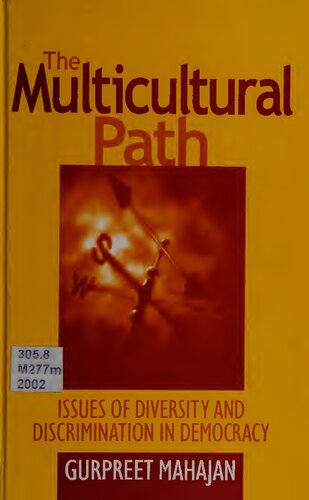

Most ebook files are in PDF format, so you can easily read them using various software such as Foxit Reader or directly on the Google Chrome browser.
Some ebook files are released by publishers in other formats such as .awz, .mobi, .epub, .fb2, etc. You may need to install specific software to read these formats on mobile/PC, such as Calibre.
Please read the tutorial at this link: https://ebookbell.com/faq
We offer FREE conversion to the popular formats you request; however, this may take some time. Therefore, right after payment, please email us, and we will try to provide the service as quickly as possible.
For some exceptional file formats or broken links (if any), please refrain from opening any disputes. Instead, email us first, and we will try to assist within a maximum of 6 hours.
EbookBell Team

5.0
100 reviewsThis book examines existing multicultural alternatives and tries to reconcile cultural rights with individual freedom. The author raises the issue of group equality by examining whether different communities occupying the same social space have the same status in the public domain. This is important as inequality often coexists with degrees of social and legal pluralism. Collective cultural participation does not mean the absence of hierarchy. It exists in the form of authority of the dominant community and the symbols of its power.
This book speaks of issues that are central to democracy. The author has taken up new issues and has attempted to provide a framework within which the rights of the minorities may be discussed. She has raised a whole set of important questions about heterogeneous public culture as against a homogeneous national culture, about political and civil rights of the minorities and about discriminatory
state policies. The author argues that individual rights and community rights must go side by side.
An important book that deals with vital social and political issues based on the Indian experience